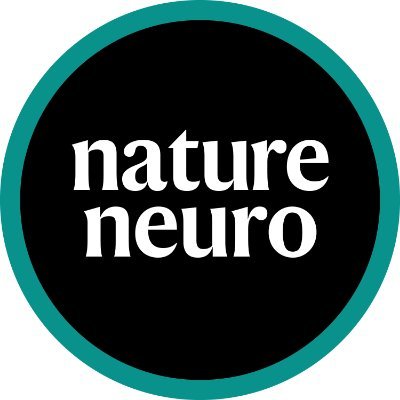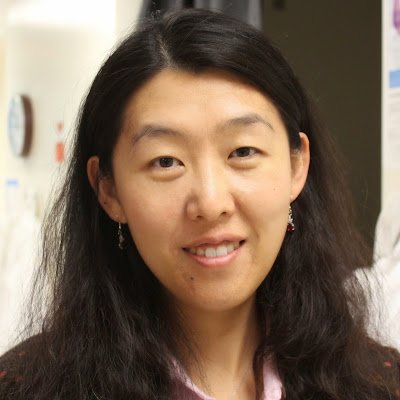
Stanford Knight Initiative for Brain Resilience
@BrainResilience
Followers
865
Following
9K
Media
286
Statuses
1K
Official account of the Phil & Penny Knight Initiative for Brain Resilience at @StanfordBrain. Pursuing a bold new science of healthy brain aging.
Stanford University
Joined November 2022
“We’re making a helmet people can wear that delivers ultrasound to the brain, and we plan to initiate clinical testing of this protocol in the next few months,” said Raag Airan. With Knight Initiative support, his lab plans to test it on people soon. 🔗 https://t.co/AyFXhn6rem
0
3
6
We are excited to announce that Community Grant applications are open! The 2026 Parkinson’s Foundation Community Grants, supported by the estate of Stanley and Gloria Brams, will support health, wellness and educational programs that address unmet needs in local Parkinson’s
0
3
4
Fantastic talks at yesterday's seminar! Ted Wilson - Unveiling early Alzheimer’s: biomarkers and breakthroughs on the path to brain resilience. Raag Airan - Ultrasonic debris clearance for improving neurofluid flow and decreasing neuroinflammation.
0
2
6
We welcome 3 Stanford Interdisciplinary Graduate Fellows (SIGFs)—Sarah Zou, Nick Manfred, and Pengli Wang! Projects include efforts to decode traumatic brain injury (TBI), map brain-body communication, and find treatments for rare childhood diseases. 🔗 https://t.co/9yx9HJBjH2
0
4
11
A pair of papers on how TDP-43 loss in ALS/FTD causes changes in mRNA polyadenylation This one from Aaron Gitler's group @StanfordMed @StanfordBrain @BrainResilience @koryant
https://t.co/XIMzL5rcw8
nature.com
Nature Neuroscience - Zeng et al. show that TDP-43, known for repressing cryptic exon usage in frontotemporal dementia/amyotrophic lateral sclerosis, also controls alternative polyadenylation,...
1
3
15
@BrainResilience @Stanford_Neuro @StanfordNsurg @StanfordMed @StanfordDeptMed @Stanford_ChEMH @Stanford @bioe_stanford @StanfordEng @kaltschmidt_lab @ChristophThaiss @arcinstitute Thaiss shares emerging research suggesting links between the gut microbiome and cognitive decline in the aging brain.
1
3
7
The 12th Annual Neurosciences Symposium is here! We're exploring the dynamic interplay between the brain, gut, and body with leading researchers from Stanford and beyond.
1
9
36
“By the time we examine an autopsied brain-tissue sample, a pathologist will have rinsed it with alcohol, removing lipids,” said Knight Initiative director Tony @wysscoray, D. H. Chen Professor II and @Stanford_Neuro professor. “So, we can miss them.” https://t.co/GiHue0TD1c
0
2
6
Our podcast has won two Signal Awards for brand storytelling in the Science & Education category! 🥈 Silver Signal Award 🏅 Listener's Choice Award Thanks to our fascinating guests, wonderful audience, host @lore_nick, and podcast producer @osbornemc for making this possible!
1
4
12
🗞️Our October issue is live!📷This month, we're featuring work on regulators of cognitive decline, senescence – immune interplay, herb-derived geroprotectors and more. Read it all here: https://t.co/baQPAD397c
1
5
23
The FDA has cleared the first blood test for Alzheimer’s for use in primary care settings specifically to rule out the presence of amyloid, a hallmark of the disease. “This is another important step toward expanding access to Alzheimer’s disease diagnostic tools,” said our
6
77
124
Thank you to our wonderful speakers and everyone who joined us at the Fall 2025 Symposium and Poster Session! It was a day full of insights into the latest research on healthy brain aging, resilience, and various neuroscience studies at Stanford.
1
3
15
It’s back! 🎉 The Stanford–UCSC Advanced Techniques in Neuroimaging Workshop returns April 13–17, 2026 🧠💡 Learn from experts, hands on experience. Free and housing included! Spots are limited — apply now and spread the word! #Neuroimaging #Zuolab
https://t.co/DTg7oHt3Wj
1
37
178
@Stanford_Neuro @StanfordPeds @StanfordBrain @StanfordMed @StanfordDeptMed @HongkuiZeng @AllenInstitute @andcyang @UCSF @GladstoneInst @StanfordNsurg @Stanford @Xuchen__Zhang @soyonhonglab @ucl @UKDRI “I'm inspired by these talks - I hope you are too,” says KI director Tony Wyss-Coray, inviting participants to keep the conversations going at the ongoing poster session.
0
0
3
@Stanford_Neuro @StanfordPeds @StanfordBrain @StanfordMed @StanfordDeptMed @HongkuiZeng @AllenInstitute @andcyang @UCSF @GladstoneInst @StanfordNsurg @Stanford @Xuchen__Zhang @soyonhonglab @ucl @UKDRI Synapse loss is the strongest correlate of cognitive decline in Alzheimer’s, Dr. Hong says, far more than plaques and tangles. Microglia play a critical role in synapse pruning during development, so she asks what role they play in synapse loss in neurological disease?
1
0
5
@Stanford_Neuro @StanfordPeds @StanfordBrain @StanfordMed @StanfordDeptMed @HongkuiZeng @AllenInstitute @andcyang @UCSF @GladstoneInst @StanfordNsurg @Stanford @Xuchen__Zhang Our final speaker today is Soyon Hon @soyonhonglab of @ucl and @UKDRI, addressing how crosstalk between neurons, glial cells, and the immune system may make synapses vulnerable to neurodegeneration.
1
2
6
@Stanford_Neuro @StanfordPeds @StanfordBrain @StanfordMed @StanfordDeptMed @HongkuiZeng @AllenInstitute @andcyang @UCSF @GladstoneInst @StanfordNsurg @Stanford Now we’re hearing from Xuchen Zhang @Xuchen__Zhang, a postdoctoral scientist in the Südhof lab, about exciting new results about SPARCL1, a factor found in young brains that appears to promote synapse formation.
1
0
3
@Stanford_Neuro @StanfordPeds @StanfordBrain @StanfordMed @StanfordDeptMed @HongkuiZeng @AllenInstitute @andcyang @UCSF @GladstoneInst @StanfordNsurg @Stanford Dr. Isakova expressed confidence that next few years will see the creation of a comprehensive molecular understanding of cognitive resilience and vulnerability across the human lifespan that will be the foundation for effective future therapies for age-related brain disorders.
1
0
3
@Stanford_Neuro @StanfordPeds @StanfordBrain @StanfordMed @StanfordDeptMed @HongkuiZeng @AllenInstitute @andcyang @UCSF @GladstoneInst @StanfordNsurg @Stanford Dr. Isakova shared progress in the lab’s brain-wide molecular atlas of human brain aging, encompassing analysis of more than 100 regions of 32 brains across the lifespan, revealing patterns of how the brain’s genetic and cellular machinery change as we age.
1
0
4








